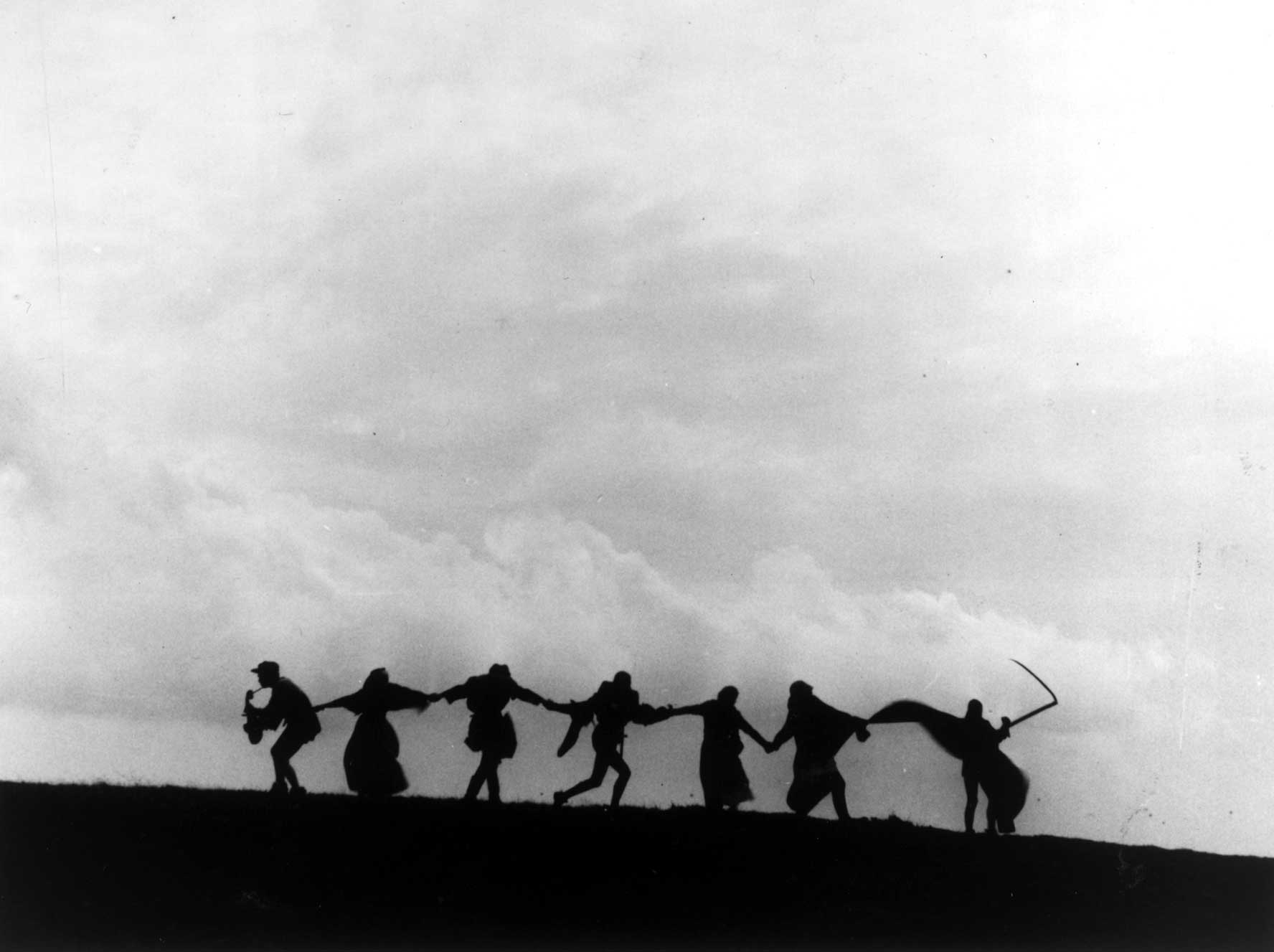 |
| "La Danse Macabre" from 1492 Parisian text of the same title |
The "Danse Macabre" (Dance of Death) is one subset of the Memento Mori genre, which bid its observers to "Remember you must die." The genre existed even before the Middle Ages, but gained momentum after the era of the Black Death, when death seemed truly unavoidable. In images of the Danse Macabre, Death himself dances with living men and women of all statuses, from kings and popes to children. These works depict death as the ultimate equalizer; death was an entity that did not discriminate. This served not only as a somber reminder of one's ultimate fate, but a moral motivator; luxury, excess, and personal success seem insignificant when they did little for a soul in the afterlife. However, how effective this message may have been is questionable, as even facing their mortality during the Black Death people reacted differently; while some were somber, reflecting on their lives, others saw their inevitable demise as reason to enjoy themselves while still living.
 |
| The Three Living and the Three Dead (14th c.) in vernacular |
Though common in Medieval and later Renaissance art, the themes of the Danse Macabre and Memento Mori have also been immortalized as key part of the Middle Ages by films such as The Seventh Seal, where a Danse Macabre is mimicked by the characters in the end, and even The Kingdom of Heaven, where a Danse Macabre is painted on a wall and pondered by Balian. Though in modern minds the theme of Memento Mori and the Danse Macabre may have seemed a morbid and frightened obsession with death, it may also have been the opposite; the presence of death may have been a sign of its acceptance and peace with the concept in society. It was not necessarily a frightened recollection of death and turmoil, but a reminder that while life was to be enjoyed, it must be lived well, for the afterlife is vast - and certainly inevitable.
 |
| The Seventh Seal's Danse Macabre |
Resources:
British Library. "The Three Living and the Three Dead." The British Library: Medieval Manuscripts
Blog, 16 Jan 2014, http://blogs.bl.uk/digitisedmanuscripts/2014/01/the-three-living-and-the-three-dead.html.
Lambeth Palace Library. "Featured Image: Danse Macabre." Lambeth Palace Library, http://www.lambethpalacelibrary.org/content/dansemacabre.



This dance is very interesting, and shows the type of art that was made in the Middle Ages. It is also interesting for us to look back on this and try to interpret the meanings of the work.
ReplyDeleteGreat choice of imagery from the Middle Ages, and even a link to a film reviewed earlier this week.
ReplyDelete